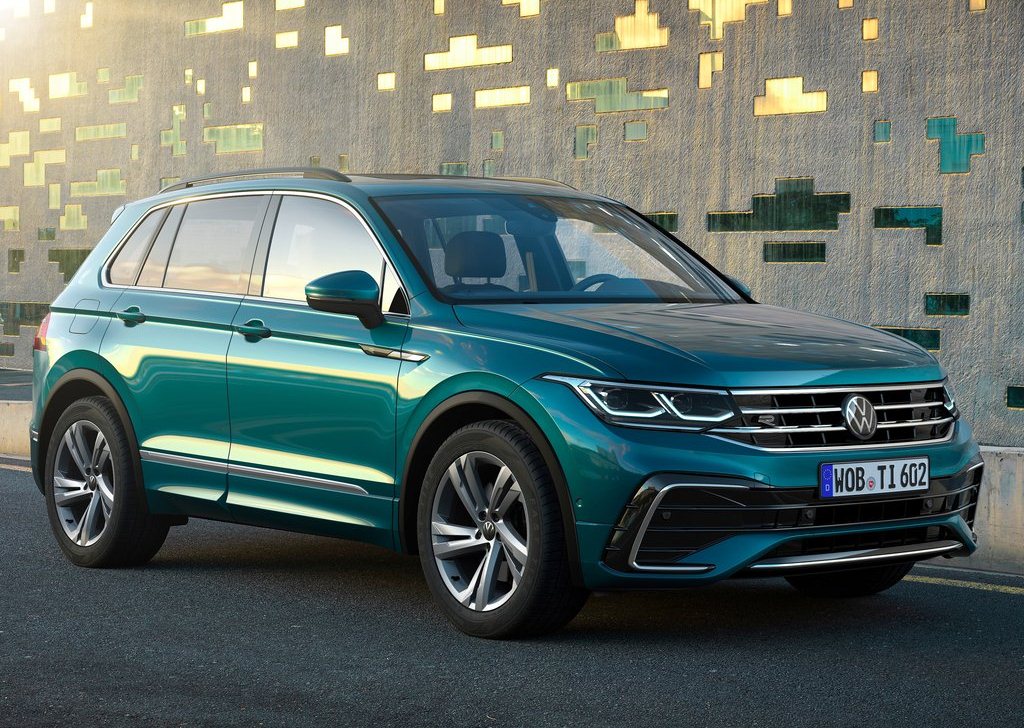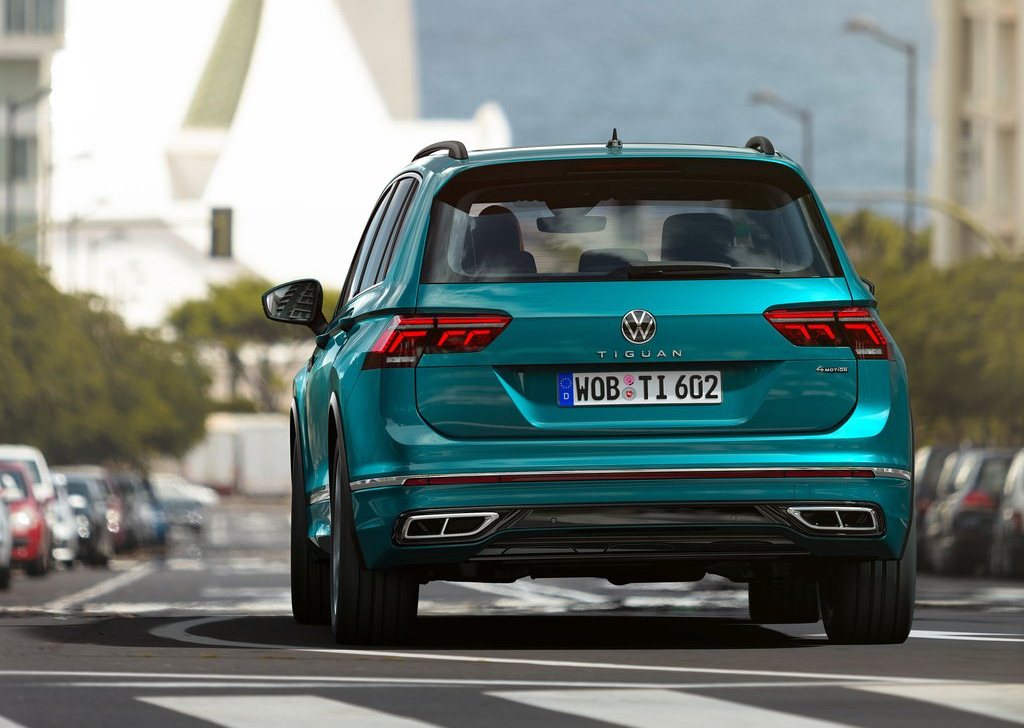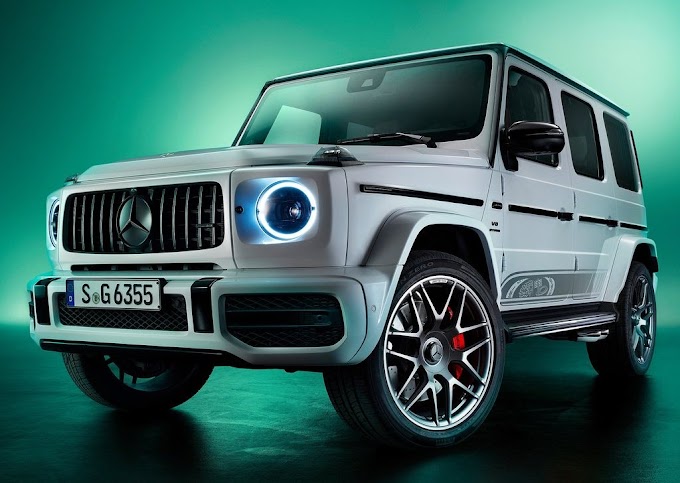In 2019, the VW Tiguan was the most successful model for both the Volkswagen brand and Volkswagen Group, with more than 910,000 units produced. Over its lifetime, more than six million have been produced, and the stage is set for Tiguan to receive a comprehensive update, including new interior and exterior styling, and innovative driver-assistance and comfort features.
Exterior
The front end is completely new. The new grille, which flows into the standard LED headlights, is wider-forging a visual link between the Volkswagen Tiguan and larger models such as the European Touareg and the Atlas Cross Sport. The new Volkswagen badge is positioned centrally at the front. The eye-catching bumpers have also undergone a makeover.
At the rear, the "Tiguan" lettering is now in a conspicuous central position below the VW badge. The "4Motion" lettering for the all-wheel drive models has also been redesigned. An updated hands-free Easy Open and Close for the power liftgate is available on midrange models. New wheel designs for every trim line round out the exterior changes.
Interior
Inside the vehicle, Volkswagen has added a digital version of the new multifunction steering wheel, featuring illuminated touch islands and sliders. An all-new touch module is available for the Climatronic® automatic climate control functions on midrange models. In addition to touch buttons, generously sized and illuminated touch sliders are used for fan and temperature control. The touch buttons can also be used to operate functions such as the newly standard heated front seats, rear window defrost, and to open the air-conditioning menu. Illuminated USB-C ports are located under the air-conditioning module.
The new Volkswagen Tiguan will feature the latest generation modular infotainment system (MIB3), a standard configurable digital instrument panel and the next-gen personalization system. MIB3 offers natural voice control, multi-phone pairing that can easily switch between devices, and wireless App-Connect. Every Tiguan is equipped with the Volkswagen Digital Cockpit, which allows the driver to configure the instrument display. An 8-inch display comes standard, and top trim models will receive a 10.25-inch display. The next generation of personalization systems is included as well, to customize features from driver-seat and mirror settings to driver-assistance system preferences. Rounding out the interior changes-an all-new available 15-color ambient lighting system and new decors for every trim. The Tiguan will continue to offer the 480-watt Fender® Premium Audio System as standard equipment on top trims.
Powertrain
The U.S. Tiguan is powered by an advanced version of the EA888 four-cylinder TSI® engine. This version of the benchmark EA888 four-cylinder, turbocharged direct-injection engine uses an innovative modification to the conventional four-stroke cycle to offer an outstanding combination of power, efficiency, and responsiveness. It incorporates the so-called Budack cycle for improved combustion efficiency. The upshot is 184 horsepower that kicks in at 4,400 rpm and is maintained until 6,000 rpm. Maximum torque of 221 lb-ft is available from 1,600 to 4,360 rpm. All Tiguan models are equipped with a standard eight-speed automatic transmission, and Start/Stop system, designed to help improve fuel efficiency. European offering includes new Volkswagen Tiguan R (235 kW / 320 PS).
Driver-assistance technology
The Volkswagen Tiguan takes assisted driving one step further with available Travel Assist. The system can take over steering, braking and acceleration of the new Tiguan at speeds of between 0 mph 130 mph (the driver remains responsible for control of the SUV at all times). To do so, the system uses functions including Adaptive Cruise Control (longitudinal guidance) and the Lane Assist lane keeping system (lateral guidance)-both available in an Advanced Driver-Assistance Package on base models or standard on midrange models. The driver activates the system by pressing a separate Travel Assist button on the new multifunction steering wheel, but must keep their hands on the steering wheel even when Travel Assist is active. Touch detection is a great deal more reliable than steering angle-based systems even on long and very flat stretches of road.
The latest generation of adaptive cruise control (ACC), available on top trims, proactively takes into account local speed limit information, town boundary signs, junctions and roundabouts. For this purpose, the assist system uses the signals from the front camera and the GPS and map data from the navigation system for control.
















0 Comments